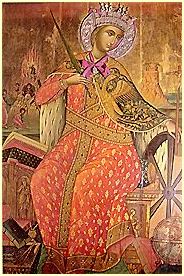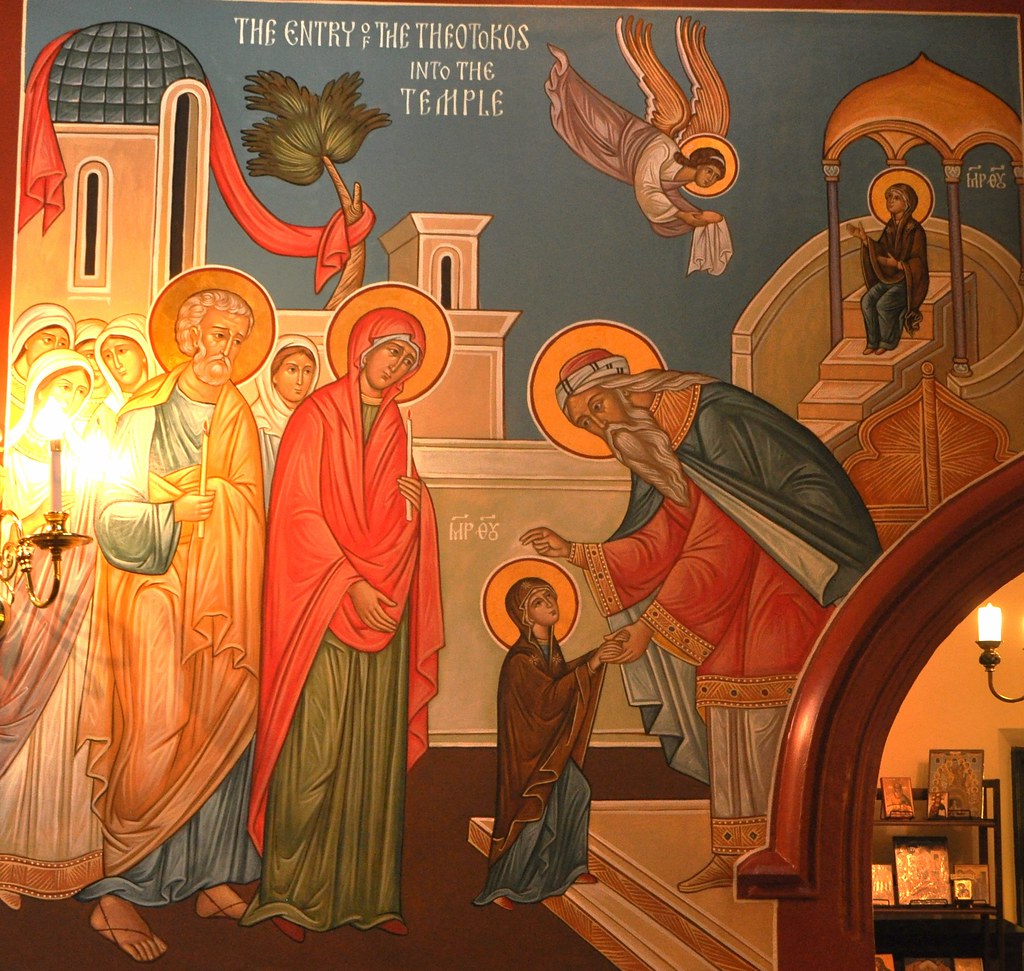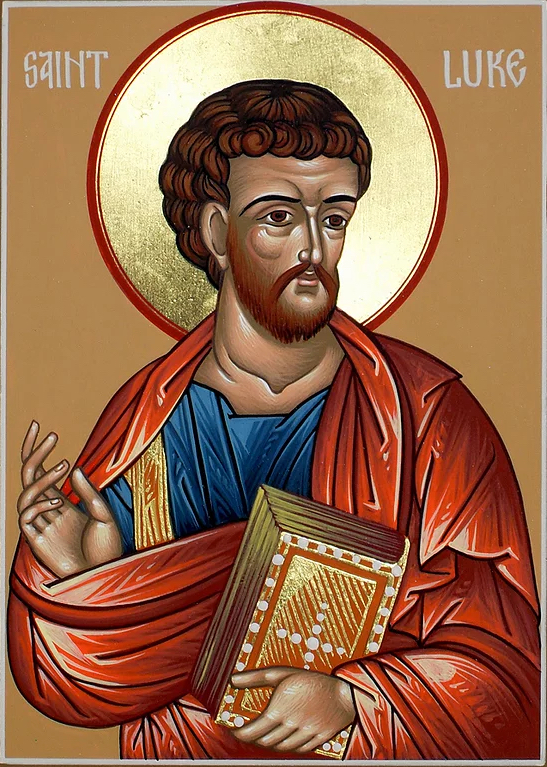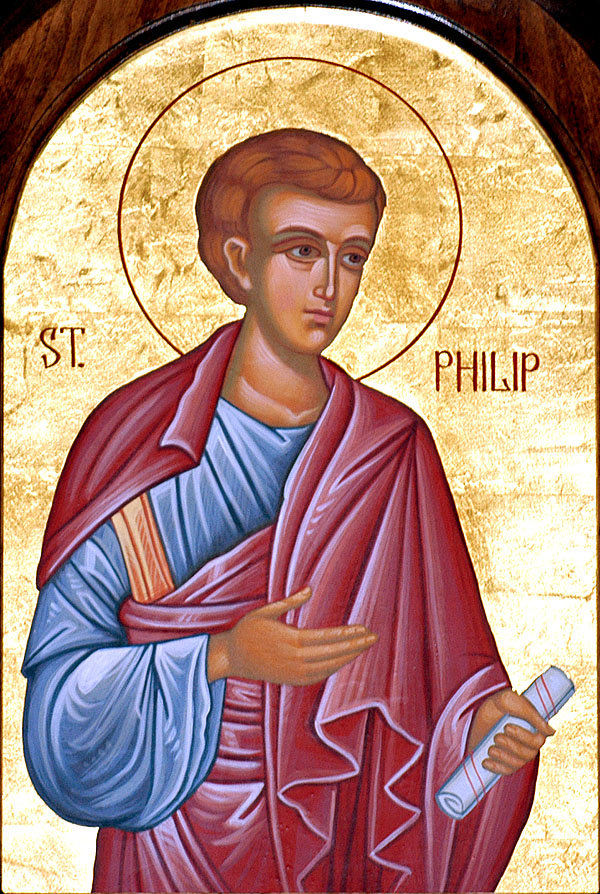Inasmuch as many have undertaken to compile a narrative of the things which have been accomplished among us, just as they were delivered to us by those who from the beginning were eyewitnesses and ministers of the word, it seemed good to me also, having followed all things closely for some time past, to write an orderly account for you, most excellent Theophilus, that you may know the truth concerning the things of which you have been informed. In the days of Herod, king of Judea, there was a priest named Zechariah, of the division of Abijah; and he had a wife of the daughters of Aaron, and her name was Elizabeth. And they were both righteous before God, walking in all the commandments and ordinances of the Lord blameless. But they had no child, because Elizabeth was barren, and both were advanced in years. Now while he was serving as priest before God when his division was on duty, according to the custom of the priesthood, it fell to him by lot to enter the temple of the Lord and burn incense. And the whole multitude of the people were praying outside at the hour of incense. And there appeared to him an angel of the Lord standing on the right side of the altar of incense. And Zechariah was troubled when he saw him, and fear fell upon him. But the angel said to him, “Do not be afraid, Zechariah, for your prayer is heard, and your wife Elizabeth will bear you a son, and you shall call his name John. And you will have joy and gladness, and many will rejoice at his birth; for he will be great before the Lord, and he shall drink no wine nor strong drink, and he will be filled with the Holy Spirit, even from his mother’s womb. And he will turn many of the sons of Israel to the Lord their God, and he will go before him in the spirit and power of Elijah, to turn the hearts of the fathers to the children, and the disobedient to the wisdom of the just, to make ready for the Lord a people prepared.” And Zechariah said to the angel, “How shall I know this? For I am an old man, and my wife is advanced in years.” And the angel answered him, “I am Gabriel, who stand in the presence of God; and I was sent to speak to you, and to bring you this good news. And behold, you will be silent and unable to speak until the day that these things come to pass, because you did not believe my words, which will be fulfilled in their time.” And the people were waiting for Zechariah, and they wondered at his delay in the temple. And when he came out, he could not speak to them, and they perceived that he had seen a vision in the temple; and he made signs to them and remained dumb. And when his time of service was ended, he went to his home. After these days his wife Elizabeth conceived, and for five months she hid herself, saying, “Thus the Lord has done to me in the days when he looked on me, to take away my reproach among men.” Now the time came for Elizabeth to be delivered, and she gave birth to a son. And her neighbors and kinsfolk heard that the Lord had shown great mercy to her, and they rejoiced with her. And on the eighth day they came to circumcise the child; and they would have named him Zechari′ah after his father, but his mother said, “Not so; he shall be called John.” And they said to her, “None of your kindred is called by this name.” And they made signs to his father, inquiring what he would have him called. And he asked for a writing tablet, and wrote, “His name is John.” And they all marveled. And immediately his mouth was opened and his tongue loosed, and he spoke, blessing God. And fear came on all their neighbors. And all these things were talked about through all the hill country of Judea; and all who heard them laid them up in their hearts, saying, “What then will this child be?” For the hand of the Lord was with him. And his father Zechariah was filled with the Holy Spirit, and prophesied, saying, “Blessed be the Lord God of Israel, for he has visited and redeemed his people.” And you, child, will be called the prophet of the Most High; for you will go before the Lord to prepare his ways, to give knowledge of salvation to his people in the forgiveness of their sins, through the tender mercy of our God, when the day shall dawn upon us from on high to give light to those who sit in darkness and in the shadow of death, to guide our feet into the way of peace.” And the child grew and became strong in spirit, and he was in the wilderness till the day of his manifestation to Israel.
Luke 1:1-25, 57-68, 76-80 (Gospel of the Nativity of St. John the Baptist)
Saint Luke provides the most information of the things that happened immediately before the Incarnation of Jesus Christ. He begins his Gospel by giving an account of the birth of St. John the Baptist, and the Annunciation of the Virgin Mary.
Saint Luke wrote both his Gospel and the book of Acts and each begins in the same way, addressed to a mysterious person named “Theophilus.” In his writings, Luke spreads the message of Christ to “Theophilus” and to all of us.
The first thing Luke does is place the Gospel in the context of history, in the days of Herod the King.
Zechariah and Elizabeth were both righteous people who had had no child. Back at that time, having no children was a sign that one did not have favor with God. And so it was undoubtedly a struggle to live with this “stigma” and stay faithful to God. Now, well beyond child-bearing years, both continued “walking in the all the commandments and ordinances of the Lord blameless.” (Luke 1:6)
Zechariah served as a priest in the temple and was burning incense at the altar. Remember that the altar of the temple was separated by a curtain, so a priest serving in the altar was not seen by the people. Thus no one saw the angel that appeared to Zechariah that announced to him that Elizabeth was going to bear a son who would be the forerunner of Christ. Zechariah’s answer was one of doubt. After all, how could this be, for Elizabeth was well past child-bearing years. The angel was the Archangel Gabriel, the same angel who would announce the Incarnation to the Virgin Mary shortly after this announcement to Zechariah. The angel told Zechariah that because of his unbelief, he would be unable to speak until the day that the angel’s words were fulfilled.
When Zechariah came out of the temple, he was unable to speak. However, as the angel promised, Elizabeth conceived and gave birth to a son. When it came time to circumcise and name the child, when he was eight days old, according to the Jewish tradition, Elizabeth told everyone that the child’s name would be “John.” The people questioned her, since there were no family members with this name. Zechariah wrote on a tablet “His name is John.” (1:63) Immediately he was able to speak and blessed God.
While Elizabeth was pregnant with St. John the Baptist, the Archangel Gabriel visited the Virgin Mary and told her that she would bear the Christ. Elizabeth and Mary were related (John and Jesus would be cousins). After the Annunciation, Mary visited Elizabeth, who was six months pregnant (1:36). We read in Luke 1:39-44 that “in those days, Mary arose and went with haste into the hill country, to a city of Judah, and she entered the house of Zechariah and greeted Elizabeth. And when Elizabeth heard the greeting of Mary, the babe leaped in her womb.” Elizabeth told Mary “when the voice of your greeting came to my ears, the babe in my womb leaped for joy.” This was a sign between the two women that Elizabeth’s son was leaping for joy, already testifying that the Son of Mary was indeed going to be the Son of God, the promised Messiah.
God’s plan for the redemption of the world involved incarnating His Son to come and live among us and lead us to salvation. In order for that plan to come to fruition, God was going to entrust some very important tasks to some very ordinary people. First, God chose a young girl, Mary, whom history says was about fourteen at the time, to bear His Son. We have discussed the faith of Mary and also of Joseph, her betrothed, on several occasions. Her “YES” was certainly a great act of faith, perhaps the greatest act of faith and love that a human being has ever expressed.
God’s plan also included a person who would speak on behalf of everyone who had ever lived as one of God’s children, and would endorse the Christ. God needed a “forerunner” to prepare the way of the Lord. For this task, he chose Zechariah and Elizabeth, two people who were older, who would have seemed very unlikely to accept this task. He chose them to bear the Forerunner. They said yes, even though Zechariah expressed doubt. While Zechariah is often looked down on—why couldn’t he just have said yes to the angel straight off—I personally find his doubt refreshing, and real. I’m not sure I wouldn’t have the same reaction if an angel appeared to me in the altar and asked me to do something that was virtually impossible—have a child at an age when it was not possible. So Zechariah is a good role model—a real person, who had real doubt, but who also had real faith. He didn’t say no to the angel. He doubted. And when he was made mute by the angel, he didn’t despair or get angry. He faithfully did what the angel commanded him to do. And his faith was rewarded.
We all play a role in God’s plan for salvation—in our personal salvation and in the salvation of others. We are all called to be disciples, apostles and encouragers of the faith to others. God calls each of us to some role. Some of these roles may seem difficult or impossible—for instance, being a parent to a child with special needs, or living with a significant illness, or suffering the loss of a child or spouse at a young age, or losing a job or any number of other challenges—and we are called to have the same faith (and even allowed some healthy doubt) as Zechariah and Elizabeth. Zechariah shows us that it is okay to doubt, so long as faith perseveres. Most of all, he shows us that God has special roles carved out for each of us and reminds us that we have to be willing to fulfill ours. Indeed we would not have a chance for salvation had it not been for not only Christ but those who acted with such faith around Him—Zechariah, Elizabeth, John, Mary, Joseph—and since His time on earth—the Apostles and saints and the innumerable amount of righteous people who have lived and shared the Gospel for the past two thousand years.
Star of stars, the Forerunner, from a barren womb is born on earth today: John, yes, John loved by God. And he manifests the resplendent dawning of Christ, the Orient from on high, for the straight passage of the faithful. (Doxastikon of the Feast of the Nativity of St. John the Baptist, Trans. By Fr. Seraphim Dedes)
Fulfill whatever role you play with faith in God!



